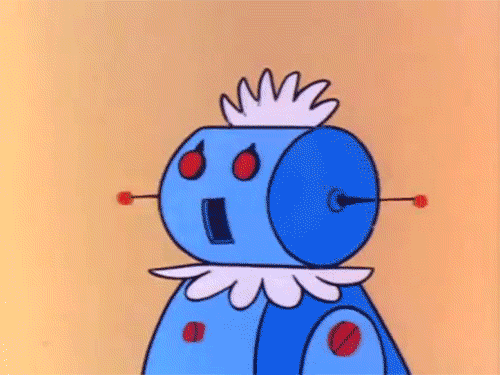Earlier, widespread automation meant the introduction of service sector jobs or big stupid machines doing repetitive work in factories. That’s not the case a couple of decades down the line, is it? Now there is software that can land aircraft, diagnose cancer, and trade stocks for you🐱👓
Machines are now capable of breaking down complex jobs into smaller, predictable ones that need very little specialization.
We are on the verge of being outcompeted!
Are we?
What is the future of automation? And how will it impact human beings?
Let’s dig deeper.
How Automation Works
Digital machines aim to do complex jobs via machine learning. The machine acquires skills and information by analyzing data and improves itself. Machines teach themselves!
We enhance this by giving it a lot of data about what we want it to get better at. Show the machine all the things you bought online and it’ll learn to recommend similar products, right?
As these machines gather more and more data about behavior, weather patterns, medical records, communication systems, travel data, etc., they’ll better themselves.
If you think about it for a while you’ll realize what we’ve created, by accident, is a huge library that learns how humans do things and in turn learn to do them better.
On average, any such software that successfully learns to replicate a human task reduces jobs and their inherited costs up to 50% in the first year and another 25% in the second year!
Moreover, automated tasks:
1. Are More Efficient
Machines can work all day long without fatigue. They can also give the same amount of output in half the time or maybe even less.
Plus, they help us get rid of all human errors.
2. Reduce Work Hours
Automation relieves the employees of the lower-skilled tasks and gives them more time to venture into creative pursuits.
It delegates work that doesn’t require human intelligence to automated machinery.
3. Produce A Spike In The Bottom Line
A McKinsey study found that globally, artificial intelligence and deep learning contributed to the annual value by $3.5-$5.8 trillion to companies.
Categorically, machines help you avoid extra employee costs like employee insurance, monthly salaries, bigger workspace, etc.
Less cost to the company means more profit and expansion into unexplored market areas.
What Can Automation Do?
Automation can help industries make their way out of a recession like the one we are facing right now and even give a leg up to the first movers who do so. (Machinery can also be a safe replacement in the healthcare industry since they are not prone to infections).
The rise of information technology has also become an enabler of automation.
The pace of technological change is increasing rapidly and COVID-19 has been counted as a contributing accelerant.
Adverse Effects Of Automation On The Job Market

“Automation is coming for your job!”
We are tired of hearing that.
From burger-flipping bots to vigilance robots, automation is replacing humans in more and more areas. It seems that hundreds of skills are rapidly becoming obsolete in the global economy.
If they haven’t already, how long do you think before machines do your work better than you do?
- Enterprises looking to streamline their business operations are turning to automation.
- In food processing industries, robots/machines are replacing employees in various stages of packaging and distribution.
- The urban institute estimates 8 million low-income jobs being lost during the pandemic.
- Low-skilled work calls for easier replacements because of the wide availability of unskilled/semi-skilled workforce.
- High-skill jobs too such as finance managers, payroll managers, and accounting roles face a 56% chance of being automated in the future.
- According to Deloitte, study, 50% of all jobs are open to automation in the coming decades.
- Similarly, a McKinsey study suggested that about 400 million workers could be replaced by the automation industry by 2030, which is about 15% of the total workforce.
The Impact And Solution
Even though there seem to be both upsides and downsides to it, automation doesn’t affect us all the same. It’s important to understand how it’ll be experienced differently by different economies in the long run.
The most apparent basis would be the financial state of the economies.
Rich economies respond well and suffer minor setbacks as compared to poorer economies. With a little foresight, we could imagine the entire world split into two classes, those who own the businesses, that own the robots, that build everything, and everybody else.
The peasant class will be forced to take up gig-style jobs in fields that they can’t fill with automation just yet. And there’s no running away from this possibility.
So, what’s the possible solution to this problem?
The real public policy challenge is not to stop automation, but to ensure that every citizen has the skills to maneuver effectively in a world that is more automated.
So, addressing skill gaps among workers should be a top priority for all companies around the world.
A collective effort from the corporate and the government is critical to combating the gap between the skill a job demands, and the skills an employee offers.
As automation grows, political solutions could be used to stem the economic pain of a workforce facing an uncertain future.
Wrapping Up

The nature of innovation of the information age is different from anything we’ve encountered before. This process started decades ago and is now well underway.
Our economics is based on the premise that people consume, but if fewer and fewer people have decent work, who’ll be doing all the consumption?
Are we producing ever so cheaply only to arrive at a point where only a few people can actually buy all that stuff and services?
Or will the future see the tiny minority of the super-rich who own the machines, dominating the rest of us?
One can only base one’s ideas on assumptions. The only thing that one can be sure of is that technological advancement is inevitable! They’re going to progress! More so, at an increasingly accelerated pace than ever.
So it’s best not to run away, but embrace change and focus on how we can prepare ourselves for what is coming.
Right?
This piece is republished from hackernoon.





